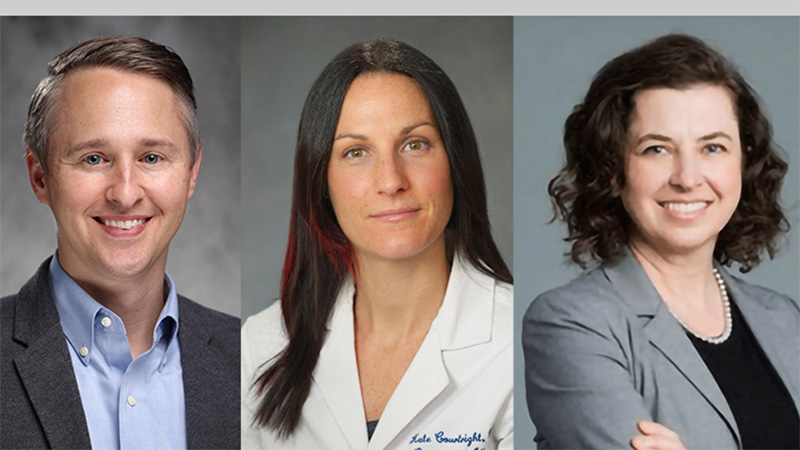

The House of Representatives is slated to vote this week on HR-1, a bill that would substantially reduce funding for geriatrics education programs. These include programs that are building the future of geriatrics academic faculty (GACAs) who also happen to be many palliative care junior faculty as well. It also will severely impact Geriatric Eduction Centers (GECs) and HRSA fellowships (which supports advanced fellowship for dentists, Mental Health Professionals, and physicians).
The H.R.1 bill allocates $352.835 million for Title VII and Title VIII programs (under which GACAs, HRSA fellowships, and GECs are funded), representing a nearly 30% cut in funding ($145.119 million) below FY 2010 funding levels. The 45 funded GECs, as well as the 13 HRSA geriatric fellowship programs and 68 GACAs will be adversely impacted by these cuts to Title VII programs.
If you are in any way interested in protecting the future of geriatrics (and those junior palliative care faculty with GACAs) – now is the time to act. Please contact members of the House of Representatives AS SOON AS POSSIBLE this week to oppose the passage of HR-1 in it’s current form.
Here is a link to get the contact information of your representatives. To find your representative’s phone numbers,click here or call the U.S. Capitol Switchboard at (202)224-3121 and ask for your representative’s office or click here.
Below is a draft letter that you can work off of if you would like. It is important to make this letter your own if you can – describing the importance of these programs in your own institution. Also describe the role it plays training a health care workforce to care for our nation’s rapidly growing elderly population, and the key role these professionals play in containing health care costs and provide quality of car. This is part of a national effort to save these programs and every letter or call will make a difference!
—-
Dear Representative ______________:
I am writing to urgently request that you vote against H.R. 1 as currently being considered by the House. This bill will destabilize funding for the nation’s health professions education and training programs focusing on the care of older adults. Support of this bill will result in loss of jobs and erosion of our nation’s public health infrastructure and health professions pipeline. H.R. 1 proposes a drastic cut of $145.119 million (29% cut) below FY 2010 levels for Title VII and Title VIII programs, which support health professions and nursing education programs authorized under Titles VII and VIII of the Public Health Service Act and administered by the Health Resources and Services Administration (HRSA). These programs, which are at the core of geriatrics training in our nation, include 45 Geriatric Education Centers, 13 Geriatrics fellowship programs, and 68 Geriatrics Academic Career Awards. If enacted, H.R.1 will derail the education of health professionals across all disciplines to provide high quality care to older people. Recruitment and retention efforts to build a culturally competent, diverse heath care workforce and to train health professions faculty to mentor the next generation of health care providers in geriatrics will receive a fatal blow. Currently making up about 12% of the US population, older adults will constitute 20% in 2030—over 70 million Americans. The nation will see the impact in declining quality of care and patient safety for our most vulnerable citizens.
As you know, the first wave of baby boomers turned 65 on January 1. We need a health care workforce trained to care for our nation’s rapidly growing elderly population if we are to contain costs and provide quality care, particularly to those who are minorities and underserved. These funds support many crucial programs.
HRSA funds support the following:
-
Outstanding junior faculty are recipients of Geriatric Academic Career Awards, which supports career development in academic geriatrics and emphasizes clinical geriatrics and training of interdisciplinary teams of health professionals.
-
Geriatric Education Centers support enhanced training in geriatrics for 50,000 or more health professions students, faculty and community practitioners across the nation. They emphasize training in the diagnosis, treatment and prevention of disease, disability and other health problems of the aged. Most GEC programs use a “train the trainer” model which results in an exponential increase in the number of health professionals who are ultimately trained to improve care for their elderly patients.
-
The Geriatric Training for Physicians, Dentists and Behavioral and Mental Health Professionals Grant Program supports training for those who plan a career in teaching geriatrics. This is a crucial activity for addressing the declining balance in the number of geriatrics-trained health professionals per 10,000 citizens aged 75 and older. There is currently a shortage of 12,000 geriatricians, which is expected to grow to 28,000 by 2030.
I recognize that this challenging budget environment requires difficult and painful decisions. However, the potential exists in this bill for destabilizing our health care workforce and seriously compromising our nation’s ability to provide appropriate and cost effective care for our elderly. It is up to us to ensure that a strong and prepared health care workforce is in place to meet the more complex needs of this burgeoning population. We ask that you reject those provisions in H.R. 1 that will threaten the viability of the Title VII and Title VIII health professions training programs.
Sincerely,



